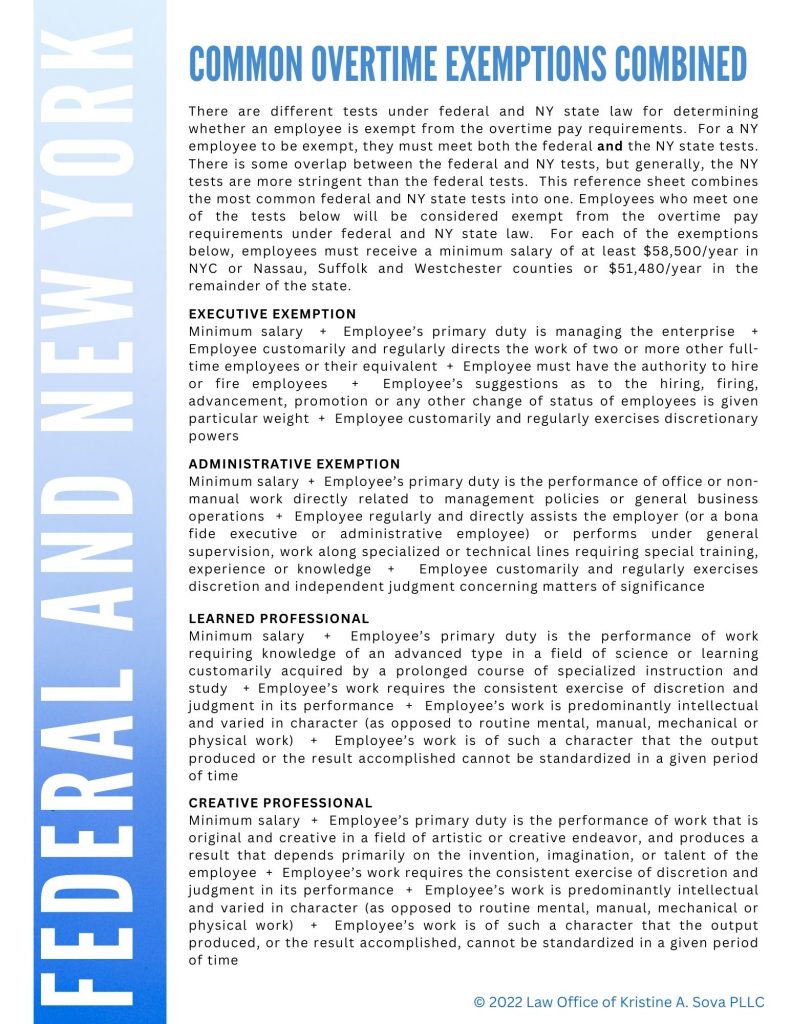Federal and/or state law generally require that most employees in the United States be paid at least the minimum wage for all hours worked plus overtime pay at a rate of 1.5 times an employee’s regular rate of pay for all hours worked over 40 hours in a workweek. However, federal and/or state law also provide for “exemption” from the minimum wage and overtime pay requirements for employees occupying positions that meet certain tests.
Some states (like New York) have their own tests for determining whether an employee is exempt from the minimum wage and overtime pay requirements. Other states either follow federal law or decline to address overtime pay at all. In states that decline to address overtime pay, applicable federal law would apply. Also, in states with their own tests, an employee must meet both the applicable federal and state law tests in order for the employee to be exempt from the minimum wage and overtime pay requirements.
There is some overlap between the federal and New York tests, but generally, the New York tests are more stringent than the federal tests. The below reference sheet combines the most common federal and New York state tests into one. Employees who meet one of the tests below will be considered exempt from the overtime pay requirements under federal and New York state law.

Keep in mind that there are number of other exemptions under federal law, some of which do not exist under New York law. For example:
• Outside Sales Exemption (New York has its own test)
• Computer Employee Exemption (this exemption does not exist under New York law)
• Exemption for Highly Compensated Employees (this exemption does not exist under New York law)
Where an exemption does not exist under New York law (for example, the computer employees exemption), the position must still meet an exemption under both applicable federal and New York law in order to be considered exempt from the overtime payment requirement.




